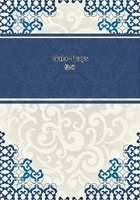
第105章
This whole way of viewing childhood, this regretful retrospect of its vanished joys, this infatuated apotheosis of doughiness and rank unfinish, this fearful looking-for of dread old age, is low, gross, material, utterly unworthy of a sublime manhood, utterly false to Christian truth. Childhood is pre-eminently the animal stage of existence. The baby is a beast--a very soft, tender, caressive beast,--a beast full of promise,--a beast with the germ of an angel,--but a beast still. Aweek-old baby gives no more sign of intelligence, of love, or ambition, or hope, or fear, or passion, or purpose, than a week-old monkey, and is not half so frisky and funny. In fact, it is a puling, scowling, wretched, dismal, desperate-looking animal. It is only as it grows old that the beast gives way and the angel-wings bud, and all along through infancy and childhood the beast gives way and gives way and the angel-wings bud and bud; and yet we entertain our angel so unawares, that we look back regretfully to the time when the angel was in abeyance and the beast raved regnant.
The only advantage which childhood has over manhood is the absence of foreboding, and this indeed is much. A large part of our suffering is anticipatory, much of which children are spared. The present happiness is clouded for them by no shadowy possibility; but for this small indemnity shall we offset the glory of our manly years? Because their narrowness cannot take in the contingencies that threaten peace, are they blessed above all others? Does not the same narrowness cut them off from the bright certainty that underlies all doubts and fears? If ignorance is bliss, man stands at the summit of mortal misery, and the scale of happiness is a descending one.
We must go down into the ocean-depths, where, for the scintillant soul, a dim, twilight instinct lights up gelatinous lives. If childhood is indeed the happiest period, then the mysterious God-breathed breath was no boon, and the Deity is cruel. Immortality were well exchanged for the blank of annihilation.
We hear of the dissipated illusions of youth, the paling of bright, young dreams. Life, it is said, turns out to be different from what was pictured. The rosy-hued morning fades away into the gray and livid evening, the black and ghastly night. In especial cases it may be so, but I do not believe it is the general experience. It surely need not be. It should not be. I have found things a great deal better than I expected. I am but one; but with all my oneness, with all that there is of me, I protest against such generalities. Ithink they are slanderous of Him who ordained life, its processes and its vicissitudes. He never made our dreams to outstrip our realizations. Every conception, brain-born, has its execution, hand-wrought. Life is not a paltry tin cup which the child drains dry, leaving the man to go weary and hopeless, quaffing at it in vain with black, parched lips. It is a fountain ever springing. It is a great deep, which the wisest has never bounded, the grandest never fathomed.
It is not only idle, but stupid, to lament the departure of childhood's joys. It is as if something precious and valued had been forcibly torn from us, and we go sorrowing for lost treasure. But these things fall off from us naturally; we do not give them up. We are never called upon to give them up.
There is no pang, no sorrow, no wrenching away of a part of our lives. The baby lies in his cradle and plays with his fingers and toes. There comes an hour when his fingers and toes no longer afford him amusement. He has attained to the dignity of a rattle, a whip, a ball. Has he suffered a loss?
Has he not rather made a great gain? When he passed from his toes to his toys, did he do it mournfully? Does he look at his little feet and hands with a sigh for the joys that once loitered there but are now forever gone? Does he not rather feel a little ashamed, when you remind him of those days? Does he not feel that it trenches somewhat on his dignity? Yet the regret of maturity for its past joys amounts to nothing less than this. Such regret is regret that we cannot lie in the sunshine and play with our toes,--that we are no longer but one remove, or but few removes, from the idiot. Away with such folly! Every season of life has its distinctive and appropriate enjoyments, which bud and blossom and ripen and fall off as the season glides on to its close, to be succeeded by others better and brighter. There is no consciousness of loss, for there is no loss. There is only a growing up, and out of; and beyond.
Life does turn out differently from what was anticipated. It is an infinitely higher and holier and happier thing than our childhood fancied. The world that lay before us then was but a tinsel toy to the world which our firm feet tread. We have entered into the undiscovered land. We have explored its ways of pleasantness, its depths of dole, its mountains of difficulty, its valleys of delight, and, behold! it is very good. Storms have swept fiercely, but they swept to purify.
We have heard in its thunders the Voice that woke once the echoes of the Garden. Its lightnings have riven a path for the Angel of Peace.
Manhood discovers what childhood can never divine,--that the sorrows of life are superficial, and the happiness of life structural; and this knowledge alone is enough to give a peace which passeth understanding.